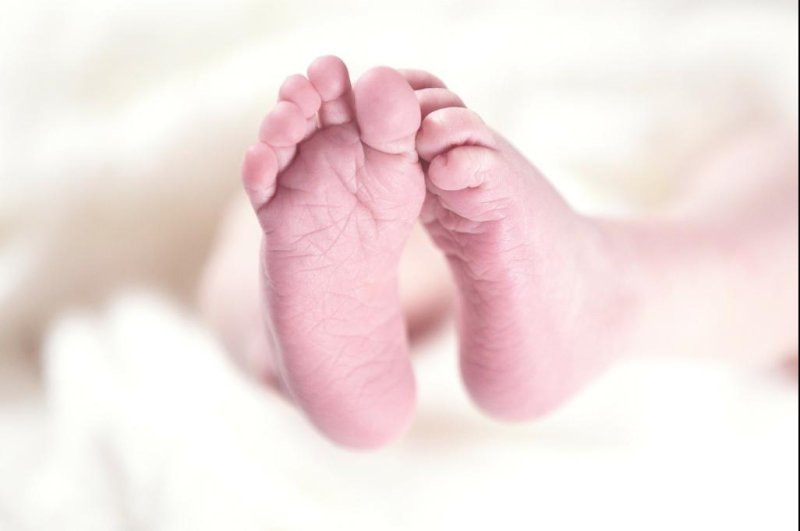The number of HIV-infected cells (reservoir cells) in infants who received immediate antiretroviral therapy was much lower than in those who began therapy months after birth, a new study found. Photo by
Rainer Maiores/Pixabay
Giving HIV-suppressing medications to infected babies within hours of birth is feasible and might help doctors eliminate hidden reservoirs of the virus, new research suggests.
"Strategies to test and treat infants immediately after birth may improve outcomes," said study senior author Dr. Mathias Lichterfeld. He's an associate physician of infectious diseases at Brigham and Women's Hospital in Boston.
"We find that antiretroviral therapy initiation within hours after birth is doable and translates into multiple benefits for the infants -- lower frequencies of reservoir [HIV-infected] cells and improved immune responses," Lichterfeld said in a hospital news release.
The "Holy Grail" of HIV/AIDS research is any treatment that goes beyond suppression of the virus in the body, to a complete elimination -- a cure. While antiretroviral therapy (ART) can get viral numbers down to nearly undetectable levels, HIV is still known to hide out in "reservoirs" in the body.
Infants can contract the virus through an infected mother, and are typically given ART within weeks or months of birth.
But as Lichterfeld's group explained, infants also have a much weaker immune system than adults, so HIV can progress much faster.
What if ART was given much sooner? In 2010, an infant with HIV born in Mississippi received ART within 30 hours of her birth and maintained HIV control for several months without further treatment. This suggested that early ART might make a critical difference for newborns.
In this study, the researchers followed the health of 10 HIV-infected newborns in Botswana, which has the third highest rate of HIV-1 infection in the world.
The babies began ART within an average of just seven hours after birth.
Their progress was compared with HIV-infected newborns who began ART a median of four months after birth.
The two groups were followed for two years, with blood samples taken at regular intervals.
The number of HIV-infected cells (reservoir cells) in the infants who received immediate ART was much lower than in those who began ART months after birth, the researchers report Nov. 27 in the journal Science Translational Medicine.
In fact, levels of reservoir cells in the immediate treatment group were even much lower than those seen in adults who'd been on ART for a median of 16 years, the team said.
Each day, 300 to 500 infants in sub-Saharan Africa become infected with HIV, the virus that causes AIDS, the researchers said. So, one U.S. expert in HIV care believes the study could be a breakthrough -- especially for the treatment of babies in the developing world.
"If we can eventually eliminate the reservoir cells infected with HIV, we can call this an 'HIV cure,'" said Dr. David Rosenthal, who wasn't involved in the new study. He directs the Center for Young Adult, Adolescent and Pediatric HIV at Northwell Health in Great Neck, N.Y.
Reductions in reservoir cells, as well as better infant immune responses, were observed after immediate treatment, Rosenthal noted.
"Both of these findings are very exciting to the field and mark a significant step forward in the state-of-the-art treatment of mother-to-child transmission of HIV," he said.
And the new insights might improve the lives of all HIV-positive people, regardless of their age, Rosenthal added.
"Studies such as these allow us to better treat newborns infected with HIV, but also give us an important window into ways we can understand and defeat the HIV virus," he explained.
"So, while we improve the health of these 10 newborns in this study, we are simultaneously understanding the mechanism by which HIV evades the immune system, thereby allowing us to design better treatments."
More information
The World Health Organization has more on mother-to-child HIV transmission.
Copyright 2019 HealthDay. All rights reserved.
![]()
















